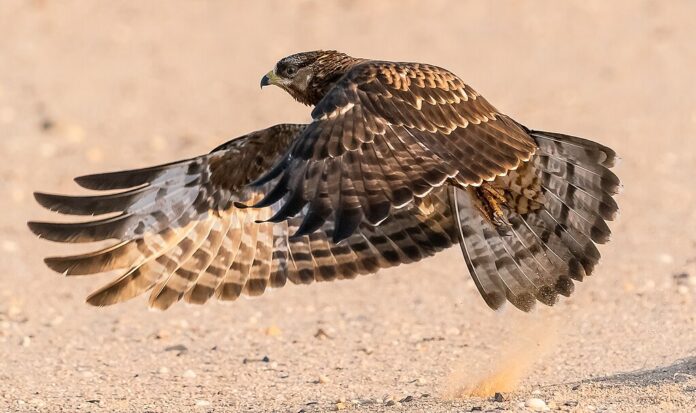John Paul Haffield was convicted for wildlife offences involving protected birds
In a significant legal development concerning wildlife conservation, Welsh photographer John Paul Haffield has been fined over £1,600 for unlawfully disturbing a nest of honey buzzards, one of Wales’s rarest bird species. The verdict was delivered at Swansea Magistrates Court following a trial under the Wildlife and Countryside Act 1981.
Haffield, aged 68 and hailing from Neath, faced charges related to intruding upon a nest housing a breeding pair of honey buzzards and their eggs, protected under Schedule 1 of the Wildlife and Countryside Act. The court found him guilty of visiting and photographing several protected bird nest sites across Wales, subsequently offering the images for sale on his personal website, which featured over 200 photographs of various protected species.
Embed from Getty ImagesPolice Constable Mark Powell, on secondment with the Natural Resources Wales Industry Regulation team, expressed disappointment over the case, emphasizing the distress caused to the birds due to Haffield’s actions. “Climbing to nests causes extreme stress to adult birds, affecting the proper incubation of eggs,” Powell remarked. He highlighted the critical nature of the honey buzzard nest, the sole known nesting site in Wales, which had been featured on the BBC documentary *Iolo’s Valleys* and is actively monitored to support the species’ survival.
Analysis:
Political Perspective:
Politically, the case underscores the importance of enforcing wildlife protection laws. It highlights the collaboration between Natural Resources Wales, local police forces, and the National Wildlife Crime Unit to combat wildlife offences. The strict enforcement of such laws reinforces government commitment to biodiversity conservation and sustainable environmental policies.
Social Perspective:
From a social standpoint, the incident sparks debate on ethical wildlife photography and conservation ethics. It raises awareness about the impact of human activities on vulnerable species and the need for responsible behaviour when interacting with wildlife. Public outrage over such incidents can influence policies advocating for stricter regulations and penalties against wildlife disturbances.
Economic Perspective:
Economically, the case highlights potential economic implications for wildlife tourism and photography. Strict enforcement against illegal wildlife activities can safeguard ecotourism revenues associated with rare species conservation efforts. It also underscores the economic value of preserving biodiversity for future generations.
